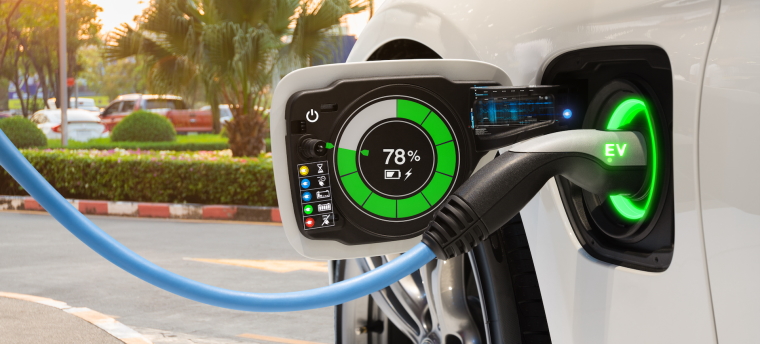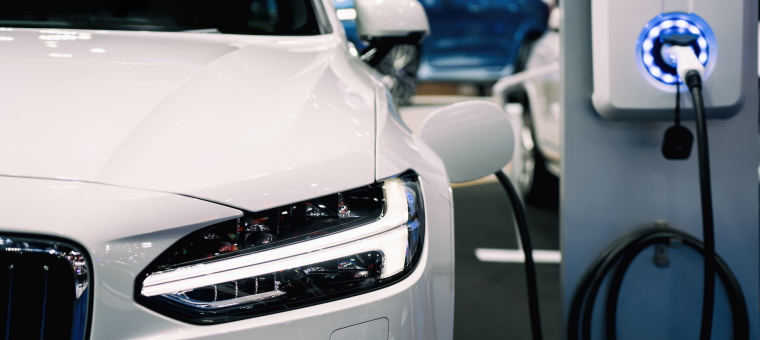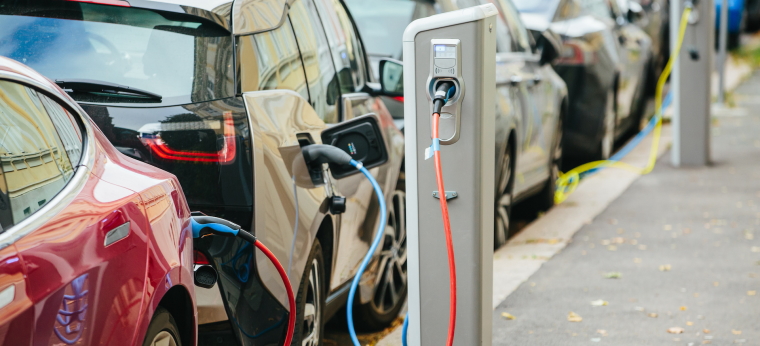How Do Electric Cars Work?
Jack Dreyer | Wednesday 29th December 2021 5:06pm

In 2020, the number of electric vehicle registrations was 186% higher than the previous year — and that number continues to rise at a rapid rate month on month.
It’s safe to say that electric cars have taken the market by storm in recent years, now accounting for over 7% of all new cars sold in the UK. And, as a cleaner, greener option that puts the planet first, it’s easy to see why.
But how do they work?
While most of us have wrapped our heads around the novelty of a ‘plug in’ car by now, the technology is actually a lot more complicated than it may at first appear.
So, if you want to find out more about the tech that drives over 345,000 UK citizens, read on.
How do electric car engines work?
Though the engines of electric cars have 90% fewer moving parts than usual combustion engines, they are still highly complex systems that require explanation.
At a basic level, electric cars work by using electricity from the grid to charge themselves up. The electricity they take on board is stored in rechargeable batteries that are used to power an electric motor which, in turn, turns the wheels.
But it is far more complicated than that.
Instead of using a petrol or diesel combustion engine, the car is powered by an electric motor. This motor takes its energy from the controller, a part responsible for regulating the amount of power according to the rate of acceleration.
The controller functions as a pathway between the energy storage unit (most commonly a chemical battery) and the engine itself, also known as the propulsion system. Along the way, an inverter will convert the direct current (DC) into alternating current (AC).
In the propulsion system’s area, the electrical energy is transferred into kinetic, physical energy which is transferred to the wheels to drive the car via the drivetrain.

What are the different types of electric car?
Depending on your unique needs and driving styles, you can choose from a range of different electric vehicles.
Plug-in electric cars
Plug-in electric cars run solely on electricity and nothing else. These types of cars only get their ‘fuel’ from electronic charging stations and don’t need any petrol or diesel whatsoever. The main attraction of these entirely electric cars is that the absence of any emissions makes driving them completely guilt-free.
Plug-in hybrid cars
Plug-in hybrids, on the other hand, combine electricity and typical fuel. Running primarily on electricity from charging stations, these cars are still a green alternative to regular motors; however, they have a petrol/diesel engine to fall back on if the charge is low.
When using their electricity reserves, these cars will produce no emissions, only emitting fumes when running on petrol or diesel. These models are extremely popular for drivers looking to dip their toe into the electric car world without completely immersing themselves in it.
Hybrid-electric cars
Lastly, hybrid-electric cars are vehicles that run primarily on fuel but also have a built-in electric battery.
This battery is charged through regenerative braking and is able to be used at just a touch of an ‘EV’-labelled button. Unfortunately, though, these models cannot be charged up at a charging source like a fully electric or hybrid car, as they rely almost entirely on petrol or diesel.
How far can electric cars drive?
Depending on the vehicle type, the distance you can travel in your electric car can vary. The main influencing factor on an electric vehicle’s range is its battery capacity. Generally speaking, the greater the capacity of an electric car’s battery, the longer it can drive without charge.
The unit of power for an electric car battery is measured in kilowatts (kW). The greater the kilowatts (kW) of a battery, the greater the range. So, the amount of energy consumed by an electric car is written in kilowatts-per-hour (kWh) and, on average, is about 2,000 kWh per year.

Electric car charging
We’ve probably all heard the snide comment about needing a really long extension lead for electric cars by now, right?.
While you don’t need an extension lead of any sort, you will need a charging cord. Whether you’re using a home charger or one of the many charging stations across the UK, your electric vehicle can only be charged by plugging it into a charging unit.
Charging your electric car at home
Charging at home is not only the most convenient way to charge your electric vehicle, but it is also the most efficient. Home charging points will fill up your vehicle the fastest - at around 10-30 miles of range per hour when plugged in.
What’s more, most up-to-date home charging stations have smart features enabled and can connect to WiFI to allow you to monitor your energy usage.
While electric cars can also technically be plugged into a standard 3-pin plug when at home, it takes far longer to charge and lacks the basic safety features of a specialist charger, so we’d recommend avoiding that at all costs!
Charging your electric car on the go
The most common charging station you’ll encounter when charging your electric car on the go is the ‘tethered’ option. These stations contain a charging point with a lead attached for either a Type 1 or Type 2 charger. Depending on what station you use — ‘Slow’, ‘Fast’, or ‘Rapid’ — your electric car will charge at varying speeds, so make sure you plan ahead.

For more information about the time it takes to charge electric cars, you can read our blog: ‘How Long Does it Take to Charge An Electric Car?’
If you have any other questions about electric cars, get in touch with the team of experts at your local Kwik Fit centre who will happily point you in the right direction.
Any facts, figures and prices shown in our blog articles are correct at time of publication.
Featured Articles
Is it Illegal to Drive With One Headlight?
Saturday 19th July 2025
Wondering if it’s illegal to drive with one headlight? Learn about the safety risks and penalties of illegal blown bulbs and why you should fix them promptly.
Air Con in EVs & Hybrids: Experts Answer Your Questions
Monday 30th June 2025
Does air con drain EV batteries? Can you use the air con while charging an electric car? Find out the answers to these questions & more from Kwik Fit’s experts.
Why Is Your Car Making a Noise? Fixes & Tips
Friday 13th June 2025
When your car starts making unexpected noises, it can certainly be quite disconcerting; it may be nothing to worry about, but here’s what you need to know.









